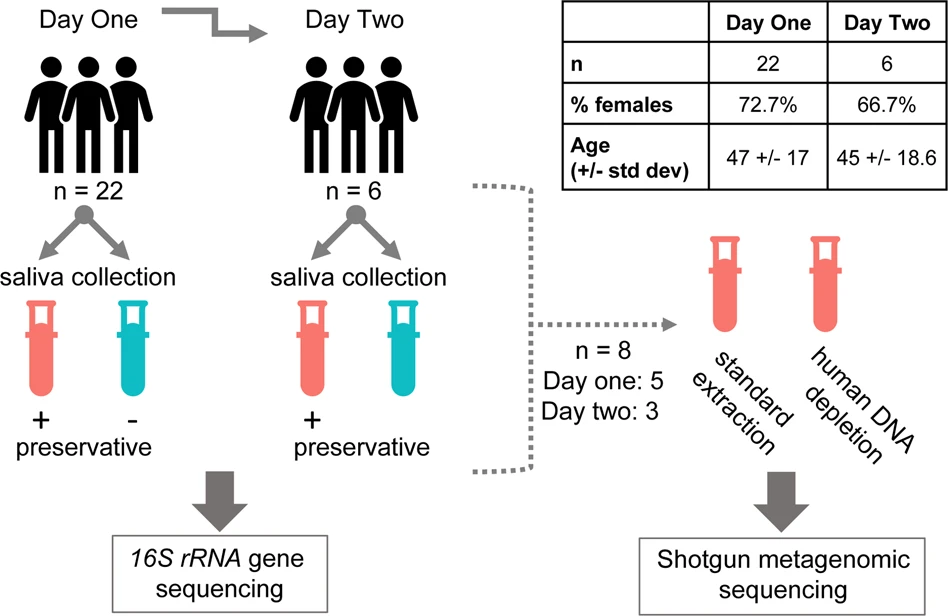

COVID-19 saliva testing kits that include a novel preservative can also be used measure microscopic organisms in the mouth, a Rutgers study found. This enables study of the relationship between mouth and lung microbes and the SARS-CoV-2 virus that may allow for the development of new treatments.
The study, published in the journal NPJ Biofilms and Microbiomes, is the first to test the accuracy of these saliva-based, at-home COVID test kits in measuring the oral microbiome, the bacteria found in animals and humans.
“We inhale a small amount of our saliva every day, so it makes sense that some of the microbes that live in our mouths would end up in our lungs,” said lead author Abigail Armstrong, a postdoctoral fellow at the Center for Advanced Biotechnology and Medicine (CABM) at Rutgers. “By studying the mouth microbiome in these banked samples of people with or without COVID-19, we can get an idea of how the microbial environment in the mouth and lung might impact the disease.”
Salvia tests use preservatives to maintain genetic material (RNA) in the SARS-CoV-2 virus to enable fast results. However, until now, it was unknown if it also would preserve the bacterial genetic material.
To test the ability to measure the microbiome in the saliva COVID test kits, the researchers collected saliva samples from 22 participants with the kits and in empty tubes. Six of the participants also came back the next days to give another set of samples so the researchers could study their microbiome over time. They then compared their ability to measure the microbiome in both types of saliva collection.
They found that the samples collected in the COVID testing kits still allowed for accurate measuring of the bacteria and gave a more stable picture of the microbiome over time compared to samples collected in kits without a preservative. These findings mean that saliva collected for COVID testing can also be used to measure microbes in the mouth and help further our understanding of the systemic effects of COVID infection and also help researchers to develop probiotic- or microbiome-centered therapies to help treat COVID-19.
“This work puts us into a position to examine the many saliva specimens we have obtained from Rutgers study subjects volunteering to participate in COVID investigations,” said senior author Martin Blaser, CABM director.

